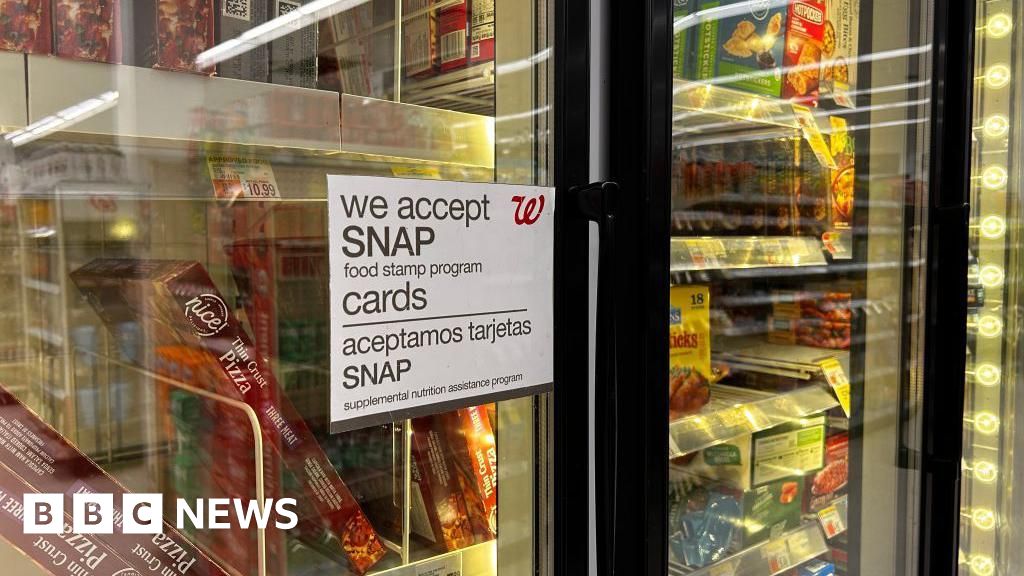Government to pay additional $475m in compensation to robodebt victims

Dan Jervis-Bardy
The commonwealth has agreed to pay $475m in additional compensation to robodebt victims in the largest class action settlement in Australian history.
The federal government announced on Thursday it had agreed to settle Knox v The Commonwealth, an appeal from the original robodebt class action settlement in Prygodicz v The Commonwealth.
The total deal amounts to $548.5m, with up to $60m set aside to administer the settlement scheme and up to $13.5 to cover the applicants’ reasonable legal costs.
The compensation, which still requires federal court approval, would be in addition to the amount paid following the original robodebt class action settlement in 2020.
In a statement, the attorney general, Michelle Rowland, said:
Today’s settlement demonstrates the Albanese Labor government’s ongoing commitment to addressing the harms caused to hundreds of thousands of vulnerable Australians by the former Liberal government’s disastrous robodebt scheme.
the royal commission described robodebt as a ‘crude and cruel mechanism, neither fair nor legal’. It found that ‘people were traumatised on the off chance they might owe money’ and that robodebt was ‘a costly failure of public administration, in both human and economic terms’.
Settling this claim is the just and fair thing to do.
Key events

Tom McIlroy
Labor should be ‘technologically agnostic’ in renewable energy rollout, Coalition moderate says
Coalition moderate Andrew Bragg has told the Senate Labor is bungling the renewable energy rollout, and putting at risk community support for net zero policies.
Bragg’s comments are a significant intervention as the opposition grapples with an intense internal debate about future support for net zero, led in part by Nationals figures including Barnaby Joyce and Matt Canavan.
Bragg said Labor was bringing an aggressive approach to net zero and renewable take up and should instead be “technologically agnostic”. He said capital markets had made up their mind on renewables but Labor needed to do more to build community consent.
Renewable energy is very good and very desirable, and in many cases it can be very inexpensive, but when you are managing a transition from a largely coal fired power based energy system to a fundamentally different system – and bearing in mind the impact that energy has on the overall economy – you must be very careful and very prudent.
It has been the regional communities that have largely paid the price here.
Bragg said better consultation was needed on transmission infrastructure and developments like offshore wind.
I think for the government to pursue this policy at any cost and trample over regional communities and not give them a proper say… I think that then imperils the whole question of community support for getting to net zero, which is a very important objective for our economy.
Thousands of university students vote in grassroots referendum on Palestine
More than 5,000 students have voted in the first National Union of Students (NUS) referendum on Palestine, expressing overwhelming support for an end to weapons companies on campus.
The referendum took place at around 20 university campuses across Australia, calling on students to vote on two motions, including censuring the Australian government for its “complicity in the genocide” and for all Australian universities to cease partnerships with weapons companies.
The NUS education officer, James McVicar, said on every campus the two motions were passed almost unanimously.
He said it was the largest nationwide student vote in decades and the first ever called by the NUS in its four-decade history:
Students in Australia have come together to demand an end to the genocide and an end to Australia’s institutional complicity. They have given their national union a mandate to fight for sanctions on Israel and an end to our universities’ complicity in militarism and war.
Authorities launch crackdown on Sydney business employing migrant workers
The Fair Work Ombudsman and Australian Border Force (ABF) officers from the Department of Home Affairs are targeting around 40 Sydney businesses employing migrant workers this week as part of surprise compliance inspections.
The areas being targeted include Blacktown, Cabramatta, Chatswood, the Hills District, Hurstville and Parramatta, with most businesses operating in fast food, restaurants and cafes as well as hair, beauty and health services.
Fair Work Inspectors are checking time and wage records, including pay slips, to ensure that vulnerable migrant workers are being paid their correct wages and entitlements.
The ombudsman, Anna Booth, said the inspections were part of a continuing national program of audits to check compliance from approved sponsors of temporary migrant workers:
Workplace breaches that involve migrant workers can be particularly serious as these workers can be vulnerable to exploitation. We find they are often unaware of their workplace rights or unwilling to speak up if something seems wrong.
The ABF’s commander of field operations and sponsor monitoring, John Taylor, said migrant workers play a “key part in the economy” and there was “no place in Australia for employers who exploit them”. Criminal penalties under the migration laws include up to two years’ jail and a fine of up to $118,800.
Government to pay additional $475m in compensation to robodebt victims

Dan Jervis-Bardy
The commonwealth has agreed to pay $475m in additional compensation to robodebt victims in the largest class action settlement in Australian history.
The federal government announced on Thursday it had agreed to settle Knox v The Commonwealth, an appeal from the original robodebt class action settlement in Prygodicz v The Commonwealth.
The total deal amounts to $548.5m, with up to $60m set aside to administer the settlement scheme and up to $13.5 to cover the applicants’ reasonable legal costs.
The compensation, which still requires federal court approval, would be in addition to the amount paid following the original robodebt class action settlement in 2020.
In a statement, the attorney general, Michelle Rowland, said:
Today’s settlement demonstrates the Albanese Labor government’s ongoing commitment to addressing the harms caused to hundreds of thousands of vulnerable Australians by the former Liberal government’s disastrous robodebt scheme.
the royal commission described robodebt as a ‘crude and cruel mechanism, neither fair nor legal’. It found that ‘people were traumatised on the off chance they might owe money’ and that robodebt was ‘a costly failure of public administration, in both human and economic terms’.
Settling this claim is the just and fair thing to do.

Patrick Commins
Bullock says there ‘may not be many interest rate declines left to come’ after latest household spending numbers
Michele Bullock, the Reserve Bank governor, says “there may not be many interest rate declines left to come” if the strong household consumption revealed in yesterday’s national accounts continues.
Bullock, in a Q&A session following a speech in Perth yesterday evening, said the bank had been expecting a lift in household spending as “real disposable incomes have been rising for about a year now”.
Wealth is rising because housing prices are rising, and normally, under those circumstances, you would expect to see consumption starting to rise … and that’s welcome.
What it means for the future of interest rates, I don’t know at this stage, but all I would say is that, if anything, probably it’s (consumption) a little stronger than we thought it would be.
So that’s good, but it does mean that it’s possible that if it keeps going, then there may not be many interest rate declines left to come, but it all depends.
Financial markets are also repricing the chance of future rate moves.
Last week, traders were fully factoring in a rate cut by November, and now see only an 80% chance of a move that month, according to ANZ analysis.
And while borrowers should still have another cut by December, financial markets are no longer sure of a follow-up cut in early 2026.
No reports of Australians killed or seriously injured in Lisbon funicular crash: Dfat
The Department of Foreign Affairs and Trade (DFAT) is making “urgent enquiries” after at least 15 people were killed when a funicular railway in Lisbon derailed and crashed on Wednesday.
A spokesperson for Dfat said they were not aware of any Australians who had been killed or seriously injured, but the department was providing consular assistance to one individual.
The Australian government offers its deepest sympathies to those affected.
Authorities said some foreign nationals were among the dead but would not identify the victims or disclose their nationalities. At least 18 people, including a child, were injured, five of them seriously, emergency services said.
“It’s a tragic day for our city … Lisbon is in mourning, it is a tragic, tragic incident,” Carlos Moedas, the mayor of the Portuguese capital, told reporters.
Ben Roberts-Smith must pay portion of legal fees of publishers after failed defamation suit, court rules

Kate Lyons
Ben Roberts-Smith will have to pay lump sum costs to the publishers of the Sydney Morning Herald, the Age and the Canberra Times, to cover some of their legal fees, over his failed attempt to sue the newspapers for defamation, a court ruled on Thursday.
The federal court in Sydney determined it was appropriate that Roberts-Smith pay a lump sum of costs to the newspaper publishers and gave the two parties 14 days to decide on an appropriate figure.
Justice Nye Perram ruled that the former SAS soldier should not have to pay costs on an indemnity basis, as requested by the publishers, which allows for a higher payment of costs and is ordered by the court for reasons including if parties have brought a hopeless case, behaved unreasonably or improperly in the proceedings or committed an abuse of process.
The defamation suit was brought by Roberts-Smith, a Victoria Cross recipient and one of Australia’s most decorated soldiers, in 2018. He lost that case, with Justice Anthony Besank finding in 2023 that Roberts-Smith had, on the balance of probabilities, committed war crimes while deployed in Afghanistan.
Roberts appealed the decision, but lost that appeal in May, with three justices of the federal court agreeing he was not defamed by Nine newspapers and journalists Nick McKenzie and Chris Masters through reports which claimed he had committed war crimes
In a summary of the judgment, the appeal justices wrote that they were “unanimously of the opinion that the evidence was sufficiently cogent to support the findings that the appellant murdered four Afghan men”.
The legal costs of the marathon legal battle are believed to exceed $35m. Roberts-Smith, 46, was awarded Australia’s highest military honour, the Victoria Cross, in 2011, for single-handedly taking out machine-gun posts to protect pinned-down colleagues in Afghanistan. He has always denied the allegations against him.
He has received support from wealthy backers, including Kerry Stokes, the chairman of Seven West Media, who agreed to pay the costs of Roberts-Smith’s failed defamation action. Gina Rinehart – the mining magnate and Australia’s richest person, who criticised a “relentless attack” on Roberts-Smith – has donated to a fund designed to support the legal costs of former SAS soldiers but declined to say whether she personally funded Roberts-Smith’s legal costs.
Senator Jacinta Nampijinpa Price describes anti-immigration march as a ‘demonstration of unity’
Liberal Senator Jacinta Nampijinpa Price has described the March for Australia rallies over the weekend attended by confirmed neo-Nazis as “a pro-Australia march” attended by “quiet Australians” and a “demonstration of unity”.
In a doorstop this morning, Price said Australia had “come under attack” from the left after she was forced to remove an Australian flag in the Senate on Wednesday.
I implore others around the country to take up wearing the Australian flag. I think it’s a wonderful thing to do. I think we need to teach our children to be proud to call themselves Australian.
Asked if protests over the weekend had stoked division, she said they “weren’t necessarily protests” but were a “pro-Australia march”.
For so long, Australians who are proud to call themselves Australian have been under attack – particularly by the left – and have been told that we are a racist country. And this has been brewing for some time … What happened was, the quiet Australians came out and decided to be loud. That’s what that was about. To say no, no, no, let’s be proud of who we are.
I saw some beautiful footage of members of the migrant community standing with white Australians … and singing our national anthem together happily, joyfully and so proud in doing so. That to me was a demonstration of unity.
AI and deepfakes top most concerning trends for parents, anti-bullying review finds
A federal government review into bullying in schools has received more than 1,700 submissions, its co-chair has revealed. Speaking to the media on Wednesday, Jo Robinson said the submissions had spoken to the “complexity of bullying and its nature”, which was amplified by “broader societal pressures”.
They don’t just occur in the school playground anymore – they can follow you home and they can be hard to escape from.
Probably the most concerning trend for parents, young people and teachers would be the evolving space of technology: AI, deepfakes. There’s a real challenge in trying to stay ahead of what’s required in order to be able to respond effectively to it …
Some of the other things that we’ve heard is a really strong support for national leadership and guidance around this issue. The work that we’re doing will lead to some recommendations around what a national standard could look like for bullying across the country.
The education minister, Jason Clare, said recommendations from the review would be presented to he and his counterparts when they next meet in Queensland in mid-October.
That’s when I’m hopeful … ministers will agree to those recommendations. And then we’ll have to set out the plan for how we implement them.

Sarah Basford Canales
New expert committee to guide NDIS overhauls revealed
The Albanese government has revealed a new expert committee to advise on major overhauls to the NDIS, announcing NSW disability council deputy chair, Jill Duncan, as its head.
Jenny McAllister, the NDIS minister, made the announcement overnight as a committee to determine the “best-practice, evidence-based supports that deliver results”.
The committee will assess the independent advice provided to them on the suitability of NDIS supports for funding, including therapies and assistive technologies.
Public consultation will start later this year and the Albanese government will commit $45.5m to the committee over the next four years.
The full committee includes:
McAllister said:
The committee is about making sure that every dollar invested in the NDIS is well spent on quality, evidence-based supports that make the lives of people with a disability better.
David Pocock to make a voluntary lobbying register public
The independent senator for the ACT, David Pocock, will renew calls for reform to the political influence of lobbying today.
Fronting the media alongside other crossbench parliamentarians this morning, Pocock will announce a voluntary register for politicians to publish information about lobbyists with privileged access-all-areas passes to Parliament House.
Pocock is proposing to maintain the voluntary register on a central, publicly accessible website.
He said lobbying had a “legitimate role to play” in the political system but it needed to be transparent and well regulated.
People with sponsored passes enjoy enormous privilege and access to our most senior decision makers. It is not unreasonable for the Australians those parliamentarians have been elected to represent to know who enjoys that access, and who gave it to them, and I hope my parliamentary colleagues will participate.
Last year’s Senate inquiry into lobbying highlighted just how broken our current system is and also demonstrated that many lobbyists also support a stronger one.
The register will be made public next month.
Attack on Indigenous Camp Sovereignty ‘reprehensible’: Malarndirri McCarthy
Australia’s minister for Indigenous Australians, Malarndirri McCarthy, says her phone “went crazy” on Sunday night after the attack.
Speaking to the Today show earlier, she said the attack on Camp Sovereignty in Melbourne was “absolutely appalling”.
That attack that occurred was reprehensible, it was absolutely appalling. First Nations people were looking after, and are looking after the sacred bones of ancestors at that particular site. It is a sacred ground and it was reprehensible what took place there.
My phone just went crazy on Sunday night, this week my office has been inundated by Australians who are fearful of what they saw, who are angry.
Carr says he pulled out of Chinese military parade invite after ‘nature’ of event became clear
Former foreign minister Bob Carr says he pulled out of attending yesterday’s Chinese military parade after he learned about the “nature” of the event.
Carr and Daniel Andrews were scheduled to attend the event, Andrews did – and was filmed shaking hands with Chinese president Xi Jinping and in a group photograph with president Vladimir Putin and Kim Jong-Un.
Carr tells ABC RN Breakfast he was invited by the consul general of China in April to attend the commemorations and “didn’t hesitate for a moment” in accepting.
The consul general back in April might have mentioned in passing that there’s going to be a parade, but the nature of the parade didn’t become clear. When it did, I let the Chinese ambassador know that I would not be attending it.
I’m not interested in a Soviet-era-style military parade, although China has them, I understand, every five years. I came here to talk to Chinese scholars, Chinese diplomats, and to meet, it was very important, to meet the big concentration of Australian friends and like-minded [people] from south-east Asia.
Asked if Andrews had “poor judgement” attending the event, Carr says he’s “not going to be drawn into criticising a colleague”.
I can talk for myself, and that is I didn’t see any value in watching a display of hardware.

Tom McIlroy
Shadow attorney general distances himself from Price’s comments on immigration
The shadow attorney general, Julian Leeser, says it is appropriate Australia maintains a non-discriminatory immigration policy, distancing himself from comments by Liberal Jacinta Nampijinpa Price on Wednesday.
She walked back inflammatory claims she made on ABC TV that federal Labor was promoting migration by specific ethnic groups, including Indians, to grow its electoral support.
Singling out Indians coming to Australia, the outspoken Northern Territory senator said sections of the community were concerned at “the core number, or the type of migrants that are coming in”.
I think Labor like to be able to ensure that they’re going to allow those in that would ultimately support their policies, their views, and vote for them as well.
This is Labor. Basically, it’s power at any cost. And we see that occur all over the place in terms of the way they conduct themselves.
Speaking on RN this morning, Leeser said Price had “walked back the comments.
We believe in a race-blind migration policy. It has been our policy for 40 years or more.
Leeser spoke about the outsized contribution of the Indian community in his electorate of Berowra in Sydney.
They are involved in every imaginable community activity in my electorate, from PNCs to sporting clubs. They’re involved in every level of society, from CEOs of top companies to people employed as cleaners in buildings and so on.
Ley repeats PM’s lines that anti-immigration demonstrations had people with ‘goodwill’
Migration is the other big issue that’s dominated parliament this week, after the anti-immigration protests over the weekend, and the government released its latest immigration numbers, with the permanent intake to remain at 185,000 for this financial year.
Sussan Ley says the government needs to explain how those migrant numbers will be balanced with having enough housing and infrastructure.
The government, however, does have to address issues such as bringing a million migrants into Australia in their first two years without a plan to house them…
It’s government policy that is failing here, not migrants themselves that are failing.
Ley, like the PM, says there were people with “goodwill” at Sunday’s protests, but that they were “hijacked” by extremists.
Asked about the attack on Sunday on an Aboriginal gathering site in Melbourne, Ley says it was “absolutely hideous” and “sickening”.
Labor MP Ed Husic was far more critical of those who attended the protests, when speaking to ABC TV yesterday, and said, “Those rallies were whipped up by far-right extremists and neo-Nazis. A lot of people were warned about that.”
Coalition contests ‘bipartisan’ framing on aged care package releases
While the government has tried to frame the aged care deal as a “bipartisanship” agreement, the opposition and crossbench have said it was their pressure that got Labor to move.
The opposition leader, Sussan Ley, popped up on ABC News Breakfast a little earlier and said it was not a deal but a “defeat” for Labor – it’s the same line that she said yesterday. She also promised to continue pushing the government on the delivery of those home care packages.
The opposition had piled pressure on the aged care minister, Sam Rae, this week, directing every single question to him at question time on Monday and Tuesday. This morning, Ley says it’s a win for elderly Australians.
Most importantly, for elderly Australians, they are going to start to get more help. Because if you’re 97 years old and you’re worried and unsafe and living at home, but only barely managing, to be told that it is OK to wait several months, if not over a year for your package is not good enough.
To be told that it is okay to wait several months, if not over a year for your package is not good enough, so we’re going to continue with this issue. We’re going to continue to push and make sure that the government does what it promises.
Rae avoids answering question on ‘factional priorities’
Around 2,700 home care packages are being rolled out each week, says Rae, but won’t clarify how many of those are new packages and how many are from vacancies.
In question time this week, the opposition said no new packages had been released. Rae says:
Some of them have been new packages and then some of them have been ones that have come about because people have been moving into residential aged care or as we’ve discussed in the parliament, sadly, some people have passed away that have been receiving care as well. So there’s a mix of packages, but on average, we’ve been rolling out 2,700 packages a week.
Sally Sara then sticks the knife in and asks Rae:
How do you feel about your position in the ministry knowing that people with far more experience than you have been demoted to make way for factional priorities?
Rae is in the Victorian right faction, led by the deputy prime minister, Richard Marles. He was one of a handful of new entrants into the ministry which saw Ed Husic and the former attorney general Mark Dreyfus booted out.
Rae says he’s “very proud” to serve in the ministry.
This is a fantastic government. It’s one that I’m very proud to be a part of. We are very fortunate in that we have a huge rank of swelling talent and I’m really pleased to get to serve in the position that I do get to serve.
Aged care legislation heads to House of Representatives for final vote
After passing the Senate yesterday – with a deal struck between the government and Coalition to immediately release 20,000 home care packages – the aged care legislation will go back to the House of Representatives for a final vote today.
The government set to lose a vote in the Senate, with the Coalition, Greens and crossbench teaming up to force Labor’s hand to release more packages
The aged care minister, Sam Rae, is on RN Breakfast this morning and is being asked why it took Labor’s hand being forced to release these packages – why didn’t they just agree to release the packages sooner?
Rae won’t interact with the question (and Sally Sara asks it several times) and won’t say why it took the government so long to move.
He concedes the government didn’t need parliamentary approval to roll out extra packages but says Labor has been trying to achieve the reforms with bipartisanship.
We needed to reach a bipartisan agreement about how this was going to be done. That was a key principle that we have pursued all the way through. As of yesterday, we have reached a bipartisan agreement about how that rollout occurs.
The other part is that we’ve had evolving advice from the sector about their ability to actually respond to these increased packages that we’re going to put into the system.
Ed Husic urges Australia to prevent dual nationals joining foreign military forces in cases of ‘plausible genocide’
Labor MP Ed Husic has urged the government to prevent dual nationals joining a foreign force, in cases where “a body with the weight of the ICJ believes plausible genocide could be occurring in a part of the world where that foreign force is operating.”
Speaking to the House last night, Husic – who has been a strong advocate for Palestine and a vocal critic of Israel’s war in Gaza – said it was “not unrealistic” to expect that dual nationals in Australia may be called to serve in the Israeli defence force.
It’s understood Husic questioned whether dual Australian-Israeli citizens who were fighting in Gaza for the Israel Defence Forces could be implicated under foreign fighter laws during a party room meeting on Tuesday.
I’d urge our government to send a clear statement surrounding the risks of participating in IDF actions in Gaza.
We don’t need Australians placed in a position where they witness, abet or participate in what will likely be deemed a genocide. I’m also concerned about the impact of trauma on those returning after witnessing what they would have in Gaza.


Comment ×